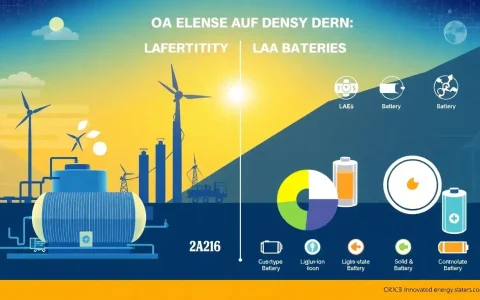
Who are the energy storage customers in Africa?
1. Energy storage customers in Africa comprise various segments including, 1. commercial and industrial businesses, 2. residential households, 3. public institutions, and 4. agricultural sectors.
- Commercial and Industrial Businesses:
Within the African landscape, commercial and industrial entities are significant patrons of energy storage solutions. These organizations often grapple with inconsistent power supply and fluctuating electricity prices, necessitating reliable alternatives. Energy storage serves multiple purposes for these businesses, including load shifting, peak demand management, and backup power during outages. By investing in energy storage technologies such as batteries or flywheels, firms can decrease their reliance on expensive grid electricity and enhance operational efficiency.
For instance, manufacturers and large-scale services can store energy during off-peak hours when electricity rates are lower and then use that stored energy during peak hours. This strategic usage leads to considerable cost savings and contributes towards a greener operation by utilizing renewable sources, such as solar or wind energy, more effectively. The optimization of their energy management systems not only bolsters their bottom line but also positions these businesses as leaders in sustainability, appealing to consumers who increasingly prioritize eco-friendly practices.
- Residential Households:
The demographic of individual homeowners represents another vital group of energy storage customers in Africa. With a steadily increasing population and rapid urbanization, many households face challenges related to energy access and reliability. The adoption of energy storage solutions provides these families with a safety net for electricity disruption.
Various forms of renewable energy, particularly solar power, can be integrated with energy storage systems. Homeowners equip their properties with solar panels that harness energy during the day and store it for nighttime use or for peak demand periods. This not only offers autonomy from erratic grid supply but also significantly reduces energy bills. Moreover, as energy storage technologies become more affordable and efficient, the prospect of energy independence has drawn many households to explore these options. Thus, the market for residential energy storage in Africa is poised for significant growth, acting as a bridge to a sustainable energy future.
- Public Institutions:
Governments and public entities also contribute to the emergence of energy storage customers within Africa. Educational institutions, health care facilities, and municipal organizations are increasingly deploying energy storage solutions to enhance service delivery and operational sustainability. By investing in energy storage, these institutions can ensure critical services remain functional in the face of power outages, which are notably common in some regions.
For example, hospitals can maintain essential operations, such as life-saving equipment, by utilizing stored energy during grid failures. Similarly, schools can provide uninterrupted learning environments by integrating these technologies. Moreover, public institutions often serve as role models in promoting renewable energy and sustainable practices; by adopting energy storage, they signal a commitment to modern energy solutions, potentially influencing private sector players and communities alike.
- Agricultural Sector:
The agricultural domain in Africa is rapidly embracing energy storage solutions as the need for reliable energy increases. Farm operations, especially those that require significant energy for irrigation, processing, and storage, pose a compelling case for energy storage implementations. Through the integration of solar power systems coupled with energy storage, farmers can harness energy during favorable weather conditions and utilize it as required, irrespective of grid availability.
Furthermore, energy storage can assuage challenges related to post-harvest losses that plague the agricultural sector due to inconsistent power supply. Cold storage facilities powered by energy storage systems can ensure that perishable goods retain their quality, thus enhancing food security and economic viability for farmers. As the sector evolves, energy storage will play a pivotal role in cultivating a resilient agricultural landscape capable of responding to both market demands and climatic variabilities.
FREQUENTLY ASKED QUESTIONS
WHO ARE THE PRIMARY USERS OF ENERGY STORAGE SYSTEMS IN AFRICA?
Energy storage systems in Africa are utilized by diverse sectors including, but not limited to, commercial enterprises, individual homeowners, public institutions such as schools and hospitals, and the agricultural sector. Each of these users faces unique challenges related to energy access and reliability, motivating them to seek solutions that support their operational needs or enhance their quality of life. Businesses often leverage storage for cost-efficiency, while households look for stability amidst erratic supply. Public agencies prioritize service continuity, and agricultural users seek to mitigate losses during peak demand or outages. Thus, the adoption of energy storage is vital across these segments to foster a more sustainable energy ecosystem.
WHAT ARE THE ADVANTAGES OF ENERGY STORAGE FOR RESIDENTIAL USERS?
For homeowners in Africa, embracing energy storage brings multifaceted advantages including, but not limited to, reduced electricity bills, enhanced energy independence, and increased reliability amid grid fluctuations. Families can utilize solar energy efficiently by storing excess energy generated during sunny periods for later use, which reduces the reliance on costly grid electricity, particularly during peak times. Additionally, energy storage systems enhance resilience by providing backup power during outages, making homes less vulnerable to disruptions. As the affordability of storage technologies improves, an increasing number of households are recognizing their potential, thus leading to a significant uptick in adoption rates.
HOW DOES ENERGY STORAGE INTENSIFY SUSTAINABILITY EFFORTS IN AFRICA?
Energy storage amplifies sustainability initiatives across African nations by enabling greater integration of renewable energy sources into the energy mix. By facilitating the efficient use of solar and wind energy, storage solutions mitigate reliance on fossil fuels and contribute to reduced carbon emissions. Furthermore, energy storage can enhance grid stability, accommodating more decentralized energy generation from renewable sources, thereby promoting an inclusive, cleaner energy grid. As policy frameworks increasingly support green technologies, stakeholders from various sectors, including private businesses and government, have the opportunity to collaborate and drive significant environmental progress alongside economic development.
The implementation of energy storage systems is crucial for economically diverse segments in Africa. As energy demands grow and climate change exerts pressure on existing infrastructures, energy storage technologies emerge as a vital solution. The journey towards sustainable energy is nuanced and multifaceted, requiring collaboration among various customers including commercial entities, residential users, public institutions, and agricultural sectors. Each of these demographic segments plays a pivotal role in sculpting the energy landscape and driving investment in energy storage technologies.
The prospects for energy storage adoption in Africa are promising. The increasing penetration of renewable energy sources, combined with the pressing need for reliable power, paves the way for innovative solutions. By deploying energy storage systems adeptly, these diverse groups not only mitigate the challenges associated with energy access and reliability but also endorse a significant shift towards a greener energy future. The harmonization of energy storage with renewable resources aligns with global sustainability objectives, presenting an opportunity for Africa to leapfrog towards a more sustainable energy framework, ultimately benefitting both the economy and the environment.
Through the focused efforts of stakeholders, the potential of energy storage in transforming the energy landscape of Africa can be fully realized. By fostering cooperation, driving investments, and promoting awareness, energy storage can become a cornerstone in the continent’s quest for energy resiliency and sustainability. This evolution is not just essential; it is imperative for the continent’s future, ensuring energy access for all and contributing to the global mission of a sustainable planet.
Original article by NenPower, If reposted, please credit the source: https://nenpower.com/blog/who-are-the-energy-storage-customers-in-africa/











